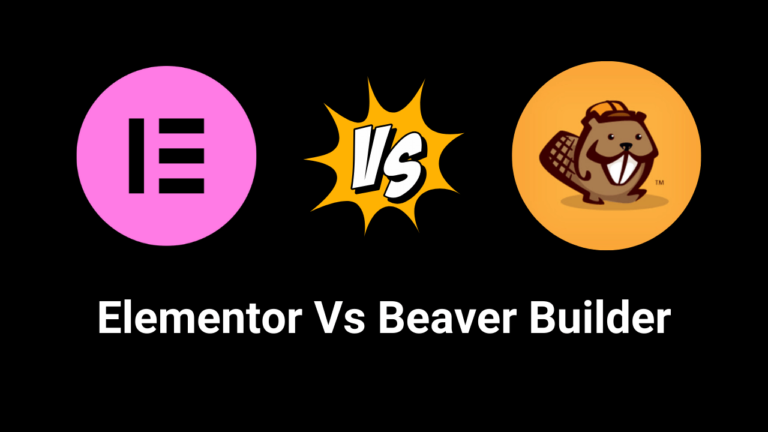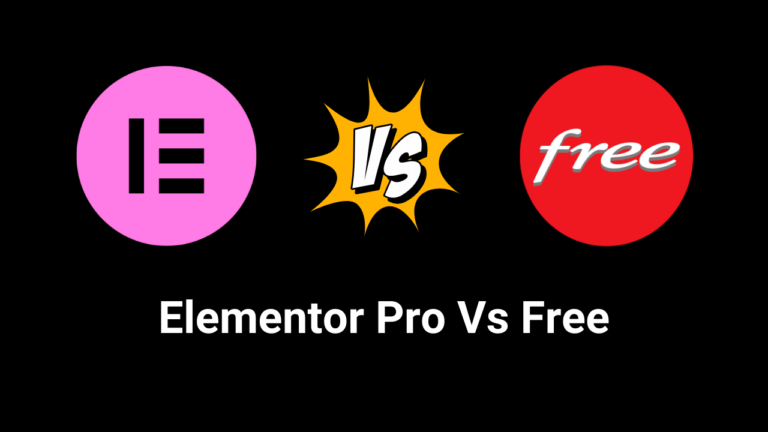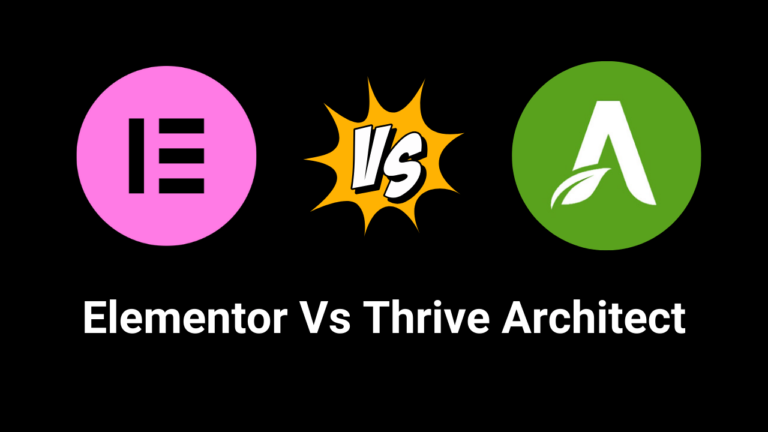In the ever-evolving world of website design, choosing the right page builder is crucial for creating stunning, functional, and high-performing websites. As we step into 2025, two giants continue to dominate the market: Elementor and Visual Composer. Both tools have their strengths, but which one truly stands out? In this comprehensive comparison, we’ll dive deep into their features, usability, performance, and more to help you decide which page builder is the best fit for your needs.
By the end of this blog, you’ll understand why Elementor is the clear winner for most users and why you should consider switching to it if you haven’t already.
Key Features Comparison: Elementor vs Visual Composer
To make this comparison easy to follow, we’ve broken it down into key features. Each section will include:
- A detailed look at Elementor’s capabilities.
- A detailed look at Visual Composer’s capabilities.
- A winner declaration with an explanation.
Let’s get started!
1. Ease of Use and User Interface
Elementor:
Elementor is renowned for its intuitive drag-and-drop interface. Even beginners can quickly create professional-looking websites without any coding knowledge. The live editing feature allows you to see changes in real-time, making the design process seamless. Elementor’s clean and organized dashboard ensures that users can easily navigate through widgets, templates, and settings.
Visual Composer:
Visual Composer also offers a drag-and-drop interface, but it can feel slightly cluttered compared to Elementor. While it provides a decent user experience, beginners might find the learning curve steeper due to its less intuitive layout. The live editing feature is available, but it’s not as smooth or responsive as Elementor’s.
Winner: Elementor
Elementor takes the lead in this category due to its superior user experience, intuitive interface, and real-time editing capabilities. It’s simply easier to use, especially for beginners.
2. Design Flexibility and Templates
Elementor:
Elementor offers an extensive library of pre-designed templates and blocks that cater to various industries and niches. Its design flexibility is unmatched, allowing users to customize every aspect of their website, from fonts and colors to spacing and animations. Elementor also supports custom CSS for advanced users who want more control.
Visual Composer:
Visual Composer provides a decent selection of templates and design elements, but its library is not as extensive or modern as Elementor’s. While it does offer customization options, they are more limited, and the overall design output often feels less polished.
Winner: Elementor
Elementor wins again with its vast template library, superior design flexibility, and modern aesthetics. It’s the better choice for users who want to create visually stunning websites.
3. Performance and Speed
Elementor:
Elementor is optimized for performance, ensuring that your website loads quickly and efficiently. It generates clean code and offers features like conditional loading to minimize bloat. Additionally, Elementor integrates seamlessly with popular caching plugins to further enhance speed.
Visual Composer:
Visual Composer has made improvements in performance over the years, but it still lags behind Elementor. The generated code can be heavier, which may impact loading times. While it does offer optimization options, they are not as effective as Elementor’s.
Winner: Elementor
Elementor’s focus on performance and clean code makes it the clear winner in this category. Faster loading times lead to better user experiences and improved SEO rankings.
4. Widgets and Add-ons
Elementor:
Elementor boasts a vast collection of widgets and add-ons, both built-in and third-party. From basic elements like buttons and images to advanced features like sliders, forms, and countdown timers, Elementor has it all. The Elementor Pro version unlocks even more powerful widgets, such as theme builders and pop-up creators.
Visual Composer:
Visual Composer offers a decent range of widgets and elements, but the selection is not as extensive or innovative as Elementor’s. Some advanced features require additional plugins or integrations, which can complicate the process.
Winner: Elementor
Elementor’s extensive widget library and seamless integration with third-party tools make it the better choice for users who need advanced functionality.
5. Pricing and Value for Money
Elementor:
Elementor offers a free version with robust features, making it accessible to beginners. The Pro version starts at $59/year for a single site, providing access to premium templates, widgets, and advanced features. Considering the value it delivers, Elementor’s pricing is highly competitive.
Visual Composer:
Visual Composer also offers a free version, but it’s more limited compared to Elementor’s. The premium plans start at $49/year, but users often need to purchase additional plugins or extensions to unlock full functionality, which can increase costs.
Winner: Elementor
Elementor provides better value for money with its feature-rich free version and affordable Pro plans. Users get more bang for their buck without needing additional purchases.
6. Community and Support
Elementor:
Elementor has a massive global community, with countless tutorials, forums, and resources available online. The official support team is responsive, and the documentation is thorough. Additionally, Elementor regularly updates its platform based on user feedback.
Visual Composer:
Visual Composer has a smaller community and fewer third-party resources. While the support team is helpful, the overall ecosystem is not as robust as Elementor’s.
Winner: Elementor
Elementor’s active community and reliable support make it the better choice for users who value assistance and resources.
Why Elementor is the Best Choice in 2025
After comparing both page builders across multiple categories, it’s clear that Elementor is the superior choice for most users. Here’s why:
- Ease of Use: Elementor’s intuitive interface makes it accessible to beginners and professionals alike.
- Design Flexibility: With a vast library of templates and widgets, Elementor allows for limitless creativity.
- Performance: Elementor’s clean code and optimization features ensure fast-loading websites.
- Value for Money: Elementor offers more features at a competitive price point.
- Community and Support: The active community and reliable support make it easy to get help when needed.
While Visual Composer has its strengths, it simply can’t match Elementor’s overall excellence.
Final Verdict: Switch to Elementor Today
If you’re still using Visual Composer or any other page builder, now is the time to make the switch to Elementor. Its unmatched features, ease of use, and performance make it the best page builder in 2025. Whether you’re a beginner or an experienced web designer, Elementor empowers you to create stunning websites with ease.
Don’t settle for less—choose Elementor and take your website design to the next level!





